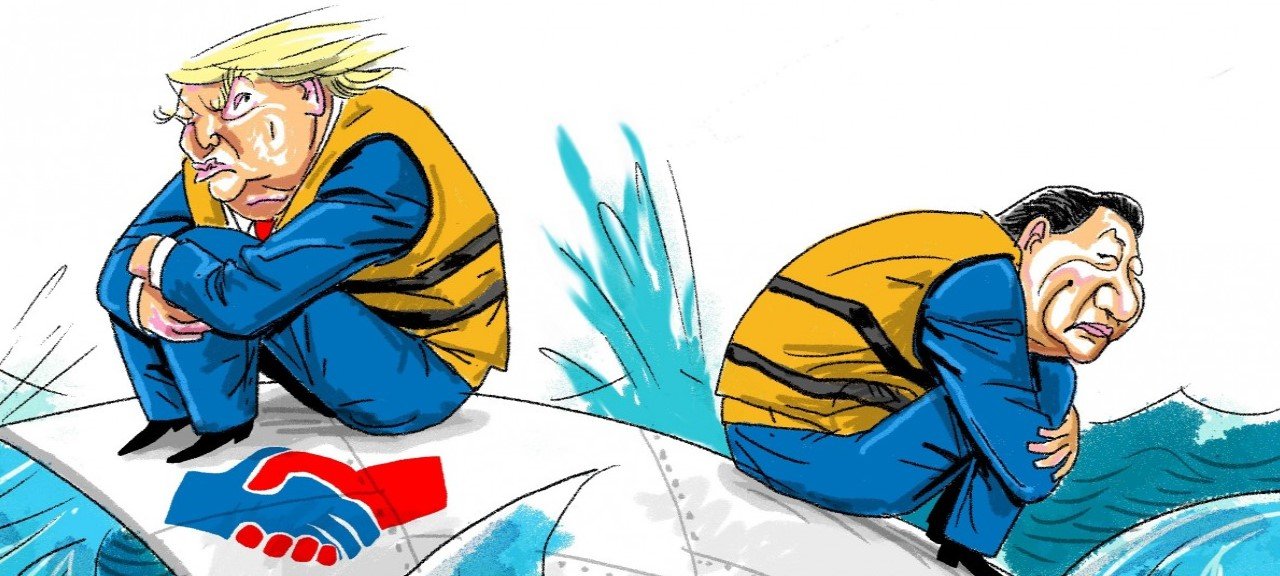

Dec
“Yes, thank you for reading” would be a superficially straightforward answer. Here at ChinaFund.com, however, those of you who are not first-time readers are most likely well aware of the fact that we pride ourselves in digging deep.
And in precisely that spirit, we want to make it perfectly clear right from the beginning that not only do we believe a collapse (be it an economic collapse, something socio-political in nature or anything in between) is possible when it comes to China, we are also of the opinion that devastating let’s call them “game-changing” scenarios are considerably more likely in China than in the proverbial West, despite the fact that things are anything but perfect on the Western front either.
Why?
For starters, we need to understand that Western nations have a much more robust track record of collective adversity scenarios under their belts, with the important caveat that we are referring to scenarios which put the politico-economic status quo and its various limitations in the spotlight.
Has capitalism been through difficult situations in the West?
Most definitely, whether we are referring to popular examples such as the Great Depression of 1929 or less popular ones such as significant inflation in the nineties throughout various European nations.
What about democracy?
Once again, the answer is yes. From examples such as the (in)famous Iron Curtain to more recent case studies of democracy being put to the text (for example, it happening as we speak in countries such as Hungary or Poland), democracy has proverbially been under attack time and time again. Yet here we are, with democracy still being the status quo in the West and even in “problem-child” nations such as Hungary, events such as the unified opposition winning over Budapest make it clear that democracy is more resilient than many would have thought.
In other words, the binomial capitalism-democracy equation ended up proving itself on various occasions in the proverbial West. While times were frequently rough, it was never quite enough to push this paradigm over the edge and despite what many hot-headed analysts predicted, this binomial relationship ended up emerging stronger than before. Yes, there is a world of difference between let’s say US capitalism and Northern European capitalism, fair enough, but the common denominator-driven framework remains intact.
How do things stand with respect to China?
Right off the bat, we want to make it perfectly clear that our intention in no way revolves around “predicting” a Chinese meltdown, not at all. We simply want to illustrate that unlike with the proverbial West, we do not yet have enough of a track record at our disposal to be as optimistic as far as the current socio-politico-economic system of China is concerned.
We can refer to the system in question as socialism with Chinese characteristics, as tends to be the norm. From the days of Deng Xiaoping up until the present, there just hasn’t been enough time for the system to prove itself in terms of resilience, nor has the appropriate context arisen. Why? Simply because the tale of China under socialism with Chinese characteristics is the tale of a country which went from essentially poverty to (collective but not necessarily individual yet) prosperity under the system in question.
In light of the fact that China started not necessarily from economic rock bottom but not far away from such a status quo either, there was pretty much nowhere to go but up economically speaking. The tale of modern-day China is nothing if not an economic Cinderella story. And to stick with the “story” narrative, it is vital to see what happens when what seems to be a fairy tale at least temporarily turns into a nightmare.
If there is anything we can be reasonably certain of, it’s that any system will eventually be put to the test in a rather dramatic manner. Then it will be put to the test once more, with future tests being on the horizon. At the end of the day, resilience in the face of adversity is what contributes to the robustness of a socio-politico-economic system and in the case of China, we just don’t know how socialism with Chinese characteristics will perform under extreme duress.
Also, as a final comment, we need to also understand that from a political perspective, not all Chinese citizens are in favor of the highly market-oriented status quo that currently exists in China. Frustrations which revolve around the idea that China should not seek economic growth at any cost have arisen right as of the days of Jiang Zemin and despite the policy flexibility manifested by Xi Jinping and his predecessor Hu Jintao with respect to the social dimension of China’s journey, political tensions persist… both within the Communist Party of China and as far as society as a whole is concerned.
Will these tensions act as a powder keg and make matters worse under scenarios which involve extreme adversity or, on the contrary, will socialism with Chinese characteristics emerge stronger than before? That is a question only a foolish analyst would dare try to answer at this point. A wise one, on the other hand, would simply make it clear that incorporating this important layer of uncertainty into your China-oriented analysis is a must. The ChinaFund.com team whole-heartedly embraces the latter viewpoint.
